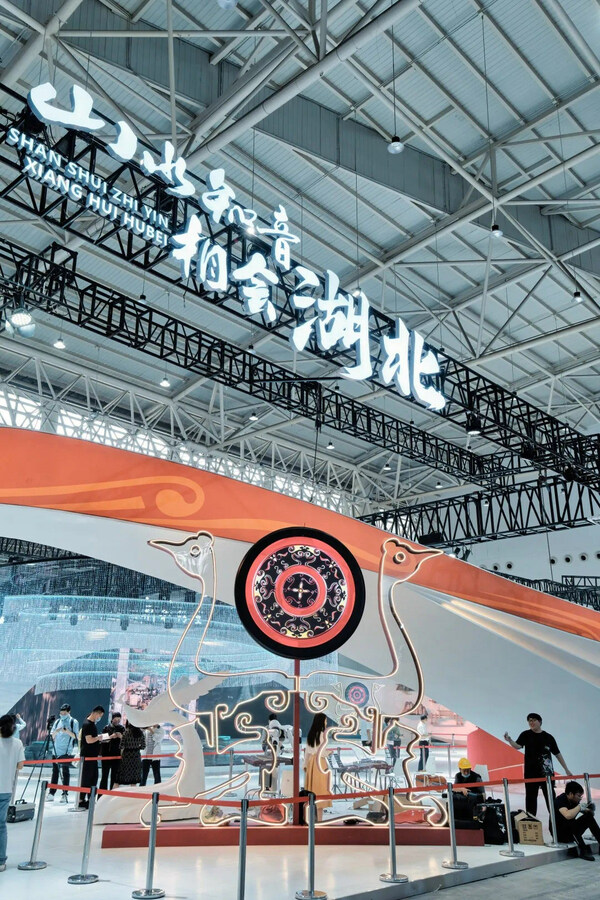BEIJING, April 26, 2023 /PRNewswire/ -- A news report from China Daily:

The 2nd China (Wuhan) Culture and Tourism Expo held during April 21 to 23 in Wuhan, the capital city of Hubei province. Chen Weilin / For China Daily
The 2nd China (Wuhan) Culture and Tourism Expo, held during April 21 to 23 in the capital of Hubei province, showcases the integrated development of China's culture and tourism industry, injecting strong confidence and vitality into the sector as the market is experiencing a strong recovery.
Themed as "Beautiful China, Better Life", the expo, with an exhibition area of 80,000 square meters, attracted 179,000 visitors, resulting in a total on-site transaction volume of 209 million yuan ($20.9 million) and online trading amount of 170 million yuan.
A signing conference specifically for 62 key culture and tourism projects valued at 112.5 billion yuan was hosted.
Beijing Tourism Group and Hubei Tourism Group reached a strategic cooperation agreement, focusing on the development and operations of middle- and high-end hotels in the Central China's province. They plan to sign at least 100 hotel projects over the next five years.
China Oriental Performing Arts Group signed a creative cooperation agreement with the Huanggang Municipal Government on the creation of a musical drama based on Su Dongpo's life. Su Dongpo, was a renowned Chinese poet, calligrapher, writer, and artist of the Song Dynasty (960-1279).
Representatives from 15 international tourism regulatory authorities and travel organizations, as well as 22 leading culture and tourism companies, such as Shanghai Disney Resort, China Telecom, China Mobile, Alipay, China Youth Travel Service, and Meituan, showcased new achievements, new models, and vitality of the industry in the new era.
The expo presented six major highlights, according to the organizers.
First, it highlighted national-level brands, with China's five national parks on show and the Beautiful China Pavilion presenting the natural beauty of China's ecology and the soul of traditional Chinese culture.
Second, it emphasized internationalization, with the participation of foreign travel organizations showcasing key cultural and tourism resources from countries and cities abroad.
Third, it highlighted the power of technology, combining new technologies, materials, and methods for immersive and interactive exhibition experiences. This includes the first-time use of 270-degree curved screens, 3D printing technology, and laser pianos.
Fourth, it showcased the unique characteristics of Jingchu (referring to the Hubei province), highlighting the advantages and core culture and tourism resources in the province. The Wuhan Pavilion, using hyper-realistic digital robots to lead visitors into an interactive and futuristic world. The expo highlighted the importance of the "Ten-Thousand-Mile Tea Road" and "Oriental Tea Port" in Hubei and set up a 20,000-square-meter exhibition area for the integration of tea and tourism.
Fifth, it highlighted trade functions, with online live streaming sales and promotion activities organized and offline art auctions, intangible cultural heritage products exhibition and sales held.
Finally, it places a strong emphasis on public participation and interaction between exhibitors and visitors. Before and during the expo, a variety of culture and tourism activities were launched to create a festive atmosphere.